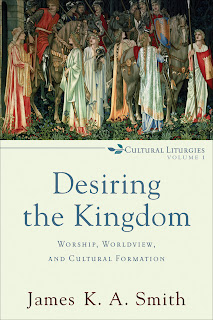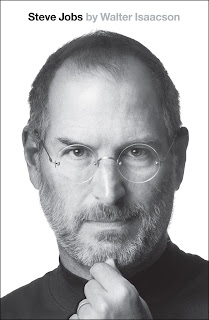Of the novels I read in 2011, here are the five that stand out in terms of their quality as well as their continued, lingering presence in my imagination:

I began 2011 by reading this novel in January. Much-discussed, people seem to either love it or hate it. I'm in the camp of the former, though I continue to think that Franzen holds an aloof, judgmental distance from his characters that makes it hard for readers to sympathize. (In fact, when I read his essay collection,
The Discomfort Zone, later in the year, I thought Franzen's critique of Mann's "ironic condescension" could just as easily be leveled against Franzen). Nonetheless, Franzen remains a master of the contemporary family epic and an astute observer of our present.

4. Richard Price,
Kate Vaiden.
I'll admit I'm inclined to lump North Carolina authors into my "Thomas Wolfe" basket. That's perhaps not always fair, but I think in this case it is entirely right to see Kate Vaiden as Reynold Price's female analogue to Wolfe's Eugene Gant. Price's novel is a Bildungsroman with young Kate Vaiden at its center, tracking her afflicted sojourns in North Carolina and Virginia. Kate is surely one of the strongest female characters in 20th-century American fiction, despite all she suffers.

In the tradition of hyper-realism, this entire novel is narrated by a young Scottish boy of 11 or 12, growing up in working class Glasgow in what seems to be the late 60s or early 70s. It is written in dialect and only avails itself of the lexicon such a lad might have at his disposal. (Though I don't think Kelman ever plausibly comes up with a trope as to why a young working class boy is putting all of this down on paper, and is able to sustain the exercise over enough time to generate a book of over 400 pages--especially since Kieron is no prodigy. While the distractions of a digital age make something like this unbelievable, by setting it in an age of pre-digital simplicity, Kelman perhaps asks us to suspend a little less disbelief.)
When I first started it, the reproduction of the dialect in print was throwing me for a loop (shades of The Sound and the Fury). So I went online looking for YouTube videos that would help me hear the lilt of the Glaswegian accent. I then went back to the book and read out loud for a few pages to help me then internalize the voice I needed to hear in my head as I read silently.
The story is both poignant and charming, while also facing up to the realities of urban life probably just a hair above poverty. You can't help falling in love with Kieron--who, while not averse to being a trouble-maker, is also sweet enough to use little asterisks to help cover up the "dirty words" he and his friends use. Indeed, Kelman probably opens himself to the charge of romanticism since this young lad is just so loveable with such a rich interior
ity. (Here again: I worry that the great loss of our Facebooked age is that 12-year-olds have less occasion to cultivate such interiority.)
Kieron's honesty and forthrightness are endearing. Consider this wonderful passage where he's beginning to notice his world in new ways (and try to hear this in a Glaswegian brogue):
Oh but Lyndsey Farel, she was Sandra's pal. People wanted to f**l off her too but she did not let them. I was down at the shops and saw her. She was looking at me. I thought she was. Another boy was there and we were smoking a fag. She had black hair coming down both sides of her eyes, and her skirt and her legs just like the way she walked and then how she turned round and just how her skirt stuck out, and just swinging. Some lasses' skirts just done that and it looked good just how it went, I thought it was good.
Kieron, with his Irish sounding name, also struggles with the religious tensions of
Glasgow, between Protestants and Catholics ("Papes"). Kieron feels like that line runs right through him: that despite being a Protestant, he might actually be a Pape, since he feels drawn to the material expressions of faith that the "RC's" seem to follow. This suspicion sneaks up on him when he finds himself alone at Sunday School, which again shows Kelman's masterful ability to get at the interiority of a boy in ways Proust could never do:
A bench was there and I sat on it. It was funny how it was just me and I was at the Sunday School and nobody else was. Out of everybody that was all my age only it was me. How come? It was just a thing and I was thinking about it. Then all other stuff. And a secret wee thing how really if I was a Pape. That was a wee thing I used to think. If I was one and did not know it so I was not going to Chapel but just to Church. I should have been going to Chapel but was not. Because I did not know. Because nobody told me. If I did not know. So I could not do it.
The novel left me with a longing to see Kieron continue to grow, hoping I could bump into him today.
One of this year's "it" novels, but very deserving of the attention and praise. (And the backstory of its long road to publication is scintillating in itself. In fact, Keith Gessen's
Vanity Fair article was so engrossing they
turned it into an e-book.)
Like Franzen, Harbach is at once literary and eminently readable--indeed, this was something of a page-turner read for me. Like Franzen, Harbach deftly crafts characters with depth who live and move and have their own being; unlike Franzen, you get the sense that the author might actually have some charity toward them. While it's a campus novel, revolving around baseball, with a college president who is a Melville scholar and who has just embarked on his very first gay relationship (with a student, no less!), none of these themes dominate the story. That, in itself, shows remarkable maturity: in the hands of some recent MFA graduate, any one of those could have become a gimmicky spine for the story. Instead, I read the novel as a long meditation on the vexing self-consciousness that plagues late modern culture. And in that respect, I see Harbach very much in the tradition of David Foster Wallace.

Wittgenstein famously concluded his Tractatus with an injunction: "Whereof one cannot speak, thereof one must be silent." My relationship to Endo's Silence is of that order: I'm hesitant to even try to speak about how this story affected me. It was my Lenten reading for 2011, and I'm seriously considering making it an annual discipline.
The story of a Jesuit missionary sent to Japan in the 17th century, some have suggested certain parallels to Graham Green's The Power and the Glory. Endo's theme is something like the depth and extent of Christ's identification with sinful humanity--that the incarnation was not just an assumption of humanity but of suffering. At the center of the story are layered considerations of solidarity. Might Christ even be willing to suffer the rejection of his followers? And what if his followers, out of solidarity with the poor and the oppressed, could undo their oppression by rejecting Christ? Then could imaging Christ actually look like rejecting him? Is this a temptation, or a way for which we lack the courage? Is martyrdom something we can impose on others? These are only a few of the tortured questions the novel evokes.
But please don't mistake this for a "religious" novel. It is human, all too human in its evocation of these themes.
 Lionel Trilling classic work of criticism, The Liberal Imagination, has been a companion for me over the past several months (and makes a brief cameo appearance in Imagining the Kingdom). It's difficult for us to read now, over fifty years later, because almost everything has changed, including our perception of "liberal"--and so we almost inevitably come to Trilling's book with misperceptions and wrong expectations. For example, we might come expecting some manifesto for an ideology that eventually gives us, say, Nancy Pelosi. That's hardly the case.
Lionel Trilling classic work of criticism, The Liberal Imagination, has been a companion for me over the past several months (and makes a brief cameo appearance in Imagining the Kingdom). It's difficult for us to read now, over fifty years later, because almost everything has changed, including our perception of "liberal"--and so we almost inevitably come to Trilling's book with misperceptions and wrong expectations. For example, we might come expecting some manifesto for an ideology that eventually gives us, say, Nancy Pelosi. That's hardly the case.



 So, I guess my little "
So, I guess my little "






 4. Richard Price,
4. Richard Price, 







